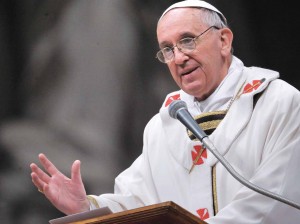 Paris dominated the news cycle last week, thanks to the coordinated terrorist attacks by ISIS. But, if it weren’t for its utility as a political bargaining chip, who a month from now would remember Paris? Soon enough something new would have displaced Paris in our minds. In our active memory, we hold fast to only one new crisis, scandal, or tragedy at a time. Dramatic tragedies are a spectator sport; we are distant from their victims, from those who suffer up close. We are so distant we don’t realize their suffering lingers long after we’ve forgotten about them.
Paris dominated the news cycle last week, thanks to the coordinated terrorist attacks by ISIS. But, if it weren’t for its utility as a political bargaining chip, who a month from now would remember Paris? Soon enough something new would have displaced Paris in our minds. In our active memory, we hold fast to only one new crisis, scandal, or tragedy at a time. Dramatic tragedies are a spectator sport; we are distant from their victims, from those who suffer up close. We are so distant we don’t realize their suffering lingers long after we’ve forgotten about them.
And what about smaller tragedies? A divorce? The death of someone else’s grandmother? A high school athlete tearing a ligament? These little sufferings may be the greatest suffering that those involved will ever know. We must actively yet calmly offer them the compassion Christ gave us.
Yet this is a puzzle. If we aren’t involved, we may not have more than momentary sympathy at hearing the news. How can we offer the forgotten sufferers Christ’s compassion? We can’t force constant attention on every tragedy forever. Besides, this vale of tears contains tragedies we’ve never known as well as those we’ve forgotten. Who isn’t wounded by suffering?
In this way, Pope Francis answers the question. We must always and everywhere be ready to meet sufferers. We must invite them to Christ, the divine physician, for he will heal them as he has healed us. These ideas, I believe, express the essential value in Pope Francis’ image of a door of mercy.
Church doors must be open “so that we can all go out to bring God’s mercy.” Self-centered churches never have a genuine thought for the suffering, and as they leave the Gospel they cut off the world from God. Just so Francis said: “An inhospitable Church, just as a family shut-in on itself, mortifies the Gospel and hardens the world.” Such a church is happy to keep its doors closed.
Once we are out, we invite others back in. In this way, “the Lord never forces the door: He even asks permission to come in.” Now, there is a “symbolic management” of doors and thresholds, to protect the interior and keep those inside safe. But such closed doors must always be manned. There must be metaphorical “porters” in order to express the invitation that a closed door cannot. Truthfully, because Christ is the door — “I am the door” — the closed door is in fact an open invitation for all who repent. The guardian expresses this invitation on behalf of Christ. But who would be this guardian?
You are this doorman. You must always express Christ’s radical love and forgiveness, and you must always point to him for whom you are the guardian. And, just as the Son became incarnate to physically express the love of God, so should we physically express radical love and forgiveness. Pope Francis’ lasting contribution will likely be his obvious call to unite the love expressed by word with the love expressed by action. Suffer with the suffering, always and everywhere, let it motivated by a purified, genuine, and intuitive love.
Even long after Mammon or memory reduces any suffering to a mere line item, suffer with those who still reel. Suffer with everyone, whether divorced, grieving, or injured, and offer them the truth and compassion of Jesus. Just so, suffer with Paris, and offer Paris the consolations of the Gospel. You are the doorman of mercy.



